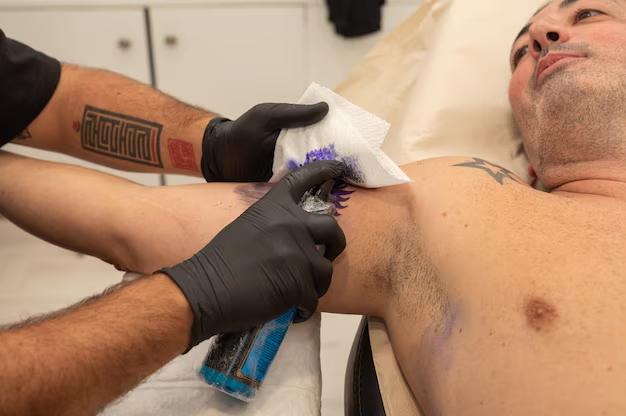Unmasking Shingles: Steps to Alleviate This Painful Condition
Shingles, often recognized by its painful rash and blistering, is more than just an itch. It's a condition that can cause significant discomfort and potential complications if not properly managed. If you or someone you love is grappling with this about shingles, this guide offers information and insights on potential ways to ease symptoms and support recovery.
What Is Shingles and How Does It Develop?
Shingles is caused by the varicella-zoster virus, the same virus that causes chickenpox. After recovering from chickenpox, the virus can lie dormant in your nerve tissue, sometimes becoming reactivated years later as shingles. The condition typically manifests as a painful rash on one side of the body, often wrapping around the torso, but it can appear anywhere on the body.
Key Symptoms of Shingles:
- Pain, burning, or tingling sensation
- Red rash that develops after a few days
- Itching
- Blisters filled with fluid
- Sensitivity to touch
Understanding these symptoms can help in early identification, a crucial step for effective management and relief.
Navigating Through Shingles: Empowering Yourself with Knowledge
Shingles might seem overwhelming, but there are ways to manage its impact and possibly reduce the duration of discomfort.
Medical Pathways to Relief
Prescription Antiviral Medications: These can be particularly effective if taken within the first 72 hours of symptom onset. Antivirals might help to reduce pain and speed up the healing process.
Pain Management Options: Beyond antiviral medications, over-the-counter pain relief options like acetaminophen or ibuprofen can help manage discomfort.
Professional Consultations: Consult with healthcare professionals for personalized management strategies.
At-Home Care: Complementary Approaches to Ease Symptoms
Managing shingles at home involves both physical care to ease symptoms and lifestyle choices to support overall healing.
Physical Care
- Cool Compresses: Applying a damp, cool cloth to irritated skin can alleviate discomfort.
- Oatmeal or Baking Soda Baths: Add these to your bathwater to help soothe the rash and reduce itching.
- Gentle Cleaning: Clean the rash with mild soap and water to reduce the risk of infection.
- Comfortable Clothing: Wear loose, soft fabrics that won't irritate sensitive skin.
Lifestyle and Self-Care
- Rest and Relaxation: Your body needs time to heal, so prioritize rest.
- Balanced Diet: Nutritious foods can bolster your immune system.
- Stress Reduction Techniques: Practice mindfulness, meditation, or gentle exercises like yoga to help manage stress, which can impact immune function.
Understanding the Potential Complications
While most people recover from shingles without any lasting effects, some experience complications. Understanding these risks underscores the importance of seeking timely medical advice.
Postherpetic Neuralgia (PHN)
PHN is the most common complication linked with shingles. It leads to persistent pain where the rash occurred, which can last for months or even years after the rash has cleared.
Prevention and Management Tips:
- Seek early antiviral treatment.
- Discuss long-term pain management options with healthcare providers.
Vision Problems
If the shingles rash occurs near the eye, it can lead to eye infections or even vision loss.
Watch for these signs:
- Swelling and redness around the eyes
- Blurred vision
- Severe eye pain
Prompt medical attention is crucial in such cases.
Lifestyle Considerations: Enhancing Immune Health
As the immune system plays a key role in controlling the varicella-zoster virus, maintaining good immune health can be beneficial in preventing shingles.
Strategies for a Healthier Immune System
- Regular Exercise: Engages your body in activities that suit your personal health status.
- Adequate Sleep: Prioritize a sleep routine that ensures quality rest.
- Healthy Eating: Incorporate a variety of fruits, vegetables, and lean proteins into your diet.
- Stress Management: Practices like meditation or deep-breathing exercises can be supportive.
Debunking Myths: Common Misconceptions About Shingles
Ignoring misinformation is an important part of managing any condition. Let's clarify some prevalent myths:
Myth 1: Shingles Only Affects Older Adults
While the likelihood increases with age, younger adults and even children can also develop shingles if they've had chickenpox.
Myth 2: Once Treated, Shingles Never Returns
Although uncommon, some people may experience shingles more than once. Maintaining a healthy lifestyle can minimize recurrence.
Myth 3: You Can Spread Shingles to Others
You cannot spread shingles itself, but you can spread the varicella-zoster virus, causing chickenpox in someone who hasn't had it or been vaccinated.
Being Proactive: Preventive Measures
Vaccination can significantly reduce the risk of developing shingles. The shingles vaccine is recommended for adults over 50, though certain health conditions may necessitate earlier vaccination.
Benefits of Vaccination:
- Lowers the chance of getting shingles
- Reduces the intensity if you do contract the virus
- Helps prevent complications like PHN
Consulting with a healthcare provider can help determine if vaccination is appropriate for you.
Bringing It All Together
Understanding how to manage and potentially prevent shingles begins with knowledge, awareness, and a proactive approach to health. While the experience of shingles can be intense, most individuals manage symptoms and heal with time and supportive care. Remember, if you suspect shingles, reaching out to a healthcare provider promptly can make a significant difference in the course of the condition.
Quick Tips for Managing Shingles
- 🕒 Act Fast: Seek medical advice within 72 hours of noticing symptoms.
- 🛀 Soothing Baths: Oatmeal or baking soda baths can ease irritation.
- 📞 Consult Professionals: Remain in touch with healthcare providers for tailored guidance.
- 🍏 Boost Immunity: Focus on a balanced diet rich in nutrients.
- 💉 Consider Vaccination: Consult about the shingles vaccine if you're eligible.
These steps can empower you to face shingles with confidence, equipped with the information and strategies needed to navigate and manage this condition effectively.

